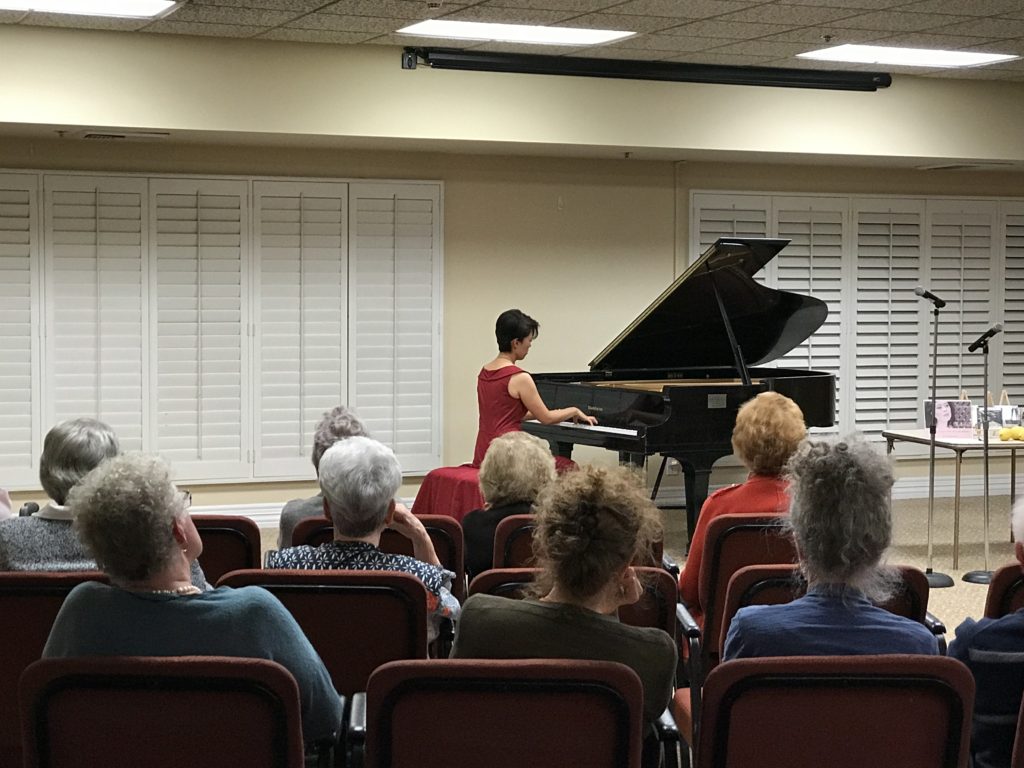It’s important to celebrate success. It builds confidence. It makes your job even more fun. And it makes you look forward to the next, and beyond. And success can teach you things, too. We tend to look to mistakes and failures for lessons, but we should be able to draw as much, if not more, lessons to learn from what went well.
So, last night, I played at a retirement community. It was not an “important” performance in the sense that it had no promises of leading to fame or fortune. But it was a community of music lovers, who’s always appreciated my music and ideas. It was a safe and supportive place where I got to take some risks, try some new repertoire, and to test myself.

We, classical pianists – and I think all performing artists – are brought up to be overcritical. Ours is a culture of perfectionism. So, it is rare to walk off-stage after a performance, feeling so good about how much you got to wholeheartedly express yourself through the pieces, feeling so perfectly connected – heard/understood/appreciated – to each member of the audience. That was the case last night.
I need to remind myself how I prepared for this particular performance, unsure whether I’d be ready enough in time. It had been a few weeks, where I’d played a straight solo concert, all by myself, for over an hour. It had been a few month since I tried a new piece I’d never played in front of an audience, that I’d learned recently. So, what worked?
- I’ve been practicing three hours a day, with a timer, since the New Year. My first time with this level of consistent practicing in 7+ years. Not just the repertoire I played last night, but still, the consistency in my practice made my brain and body better oriented to playing the piano.
- In addition, I’ve been keeping a practice journal – something I’ve never done in my life. It makes my practicing more focused on goals and ideals. And I like the physical aspects of writing with a pen on a paper.
- Because I am more physically fit than I ever was when I did practice consistently, I am now able to connect my piano playing to my core strength, using bigger muscles, with a lower center of gravity. This grounds not only my physical act of playing, but also my sense of rhythm and musical direction/structure. I sit up taller, and it literally gives me a whole new musical perspective.
- I realized that the intention of a performer is A LOT more communicative than the actual execution. IF the intention is there, every with a missed notes, or even a whole entire missed passage, the musical passion and the ultimate message, gets transmitted.
Here is a video, not from the concert I am writing about today, but nevertheless a performance I felt the rapport with the audience with.